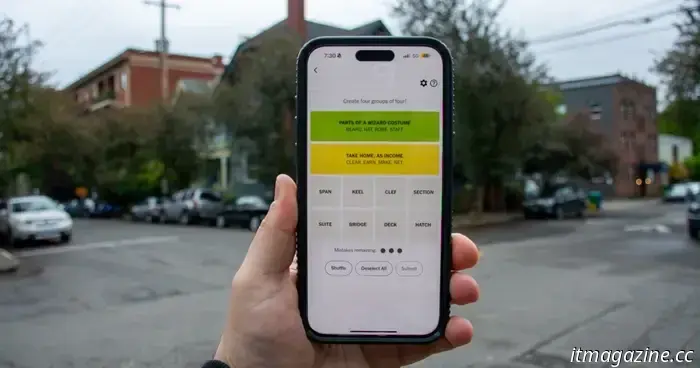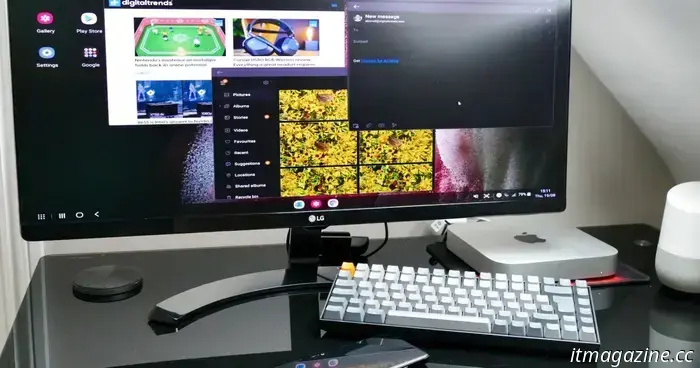Owners of the Pixel 9 and 8a will receive a useful new battery feature in Android 16.
Andy Boxall / Digital Trends
Google has hinted at a dedicated Battery Health menu since the Android 14 QPR2 Beta 2, which was over two years ago, and now the feature is finally rolling out to select users in Android 16 Beta 3. This is great news, but it only applies to the latest Pixel models. The feature is being introduced to the Pixel 9 series and the Pixel 8a; even the Pixel 8 and Pixel 8 Pro (released in late 2023) won't have access.
Google confirmed this in a thread on the issue tracker: “The Battery Health Indicator feature is currently supported in Beta 3 on the Pixel 8a and Pixel 9 products, including the 9 Pro Fold. Due to product limitations, this feature will not be available on older Pixel devices in the market.”
It seems that only devices launched in 2024 or later will support this feature, although Google hasn't provided a clear reason for this limitation. Fans speculate that the "product limitations" mentioned could relate to the inability to retrieve battery cycle counts from older models. The reasoning remains unclear, particularly since the Pixel 8 and Pixel 8a share almost identical battery types (lithium-ion), differing only slightly in capacity.
Both the Pixel 8 and 8a are equipped with the same Tensor G3 chip as well. From a hardware standpoint, there is minimal distinction between the two devices, leading to frustration among some fans regarding Google's decision to limit the feature to the Pixel 8a. One user on Reddit noted that the feature had previously been functional in an earlier beta: “[Pixel] 6 Pro here. It worked in a beta before but then they said it was only meant for 8a.”
For context, Apple has offered a Battery Health feature since 2017, applying retroactively to devices dating back to 2014 (including the iPhone 6).
This restriction may change in the future; the Battery Health menu is currently only available to participants in the Android 16 Beta 3, meaning it hasn't yet been released to the general public. Once Android 16 is widely available (expected in Q2 2025), this feature will likely become accessible on all devices running the OS. Google may reveal more details at Google I/O 2025.
Patrick Hearn writes about smart home technology such as Amazon Alexa, Google Assistant, smart light bulbs, and more.
Google has begun releasing the third beta build of Android 16. While it doesn't feature a significant visual overhaul, there are a few updates that users will appreciate. One of these is a health check system for the phone’s battery.
The new feature, known as Battery Health, can be found in the Battery dashboard within the Settings app. It doesn't offer a lot of functionality, but it does provide information regarding the electrochemical condition of the phone’s battery.
Why is this significant?
Lithium-ion batteries commonly used in smartphones undergo repeated charge-discharge cycles nearly every day. Over time, chemical degradation occurs, impacting the battery's ability to hold a charge. Essentially, rechargeable batteries are consumables with a finite lifespan.
Several factors play a role in this, including impedance and battery voltage, both of which are influenced by the battery's chemical age. Based on the battery’s health, smartphones may perform specific optimizations to manage device workload, prevent unexpected shutdowns, and handle issues like lag.
Google is introducing new features to Pixel phones with updates to the Pixel Camera as part of the March 2025 features update. Users can expect an improved astrophotography mode, along with a remote camera feature for those with newer devices.
Pixel Camera 9.0 has begun its rollout, as reported by 9to5Google. However, the update may take some time to reach all users. The popular astrophotography mode, which enables users to capture images of the night sky—typically requiring specialized camera equipment—is receiving an upgrade with a new animation mode during capture. This option is enabled by default but can be adjusted in the Settings > Advanced menu.
Over three months ago, Google started beta testing a new safety feature for Pixel phones that can detect signs of scams in voice calls via AI analysis. Today, Google has officially launched the Scam Detection feature for calls, along with a similar message screening system.
Every year, smartphone users worldwide lose millions due to intricate fraud schemes. The issue is so widespread that the US Office of Inspector General and the Federal Trade Commission have issued guidelines on recognizing and reporting such scams.
To detect scam signs during a call, Google utilizes the natural language understanding capabilities of on-device Gemini Nano AI on Pixel phones. The AI monitors the ongoing conversation in real-time, and if it identifies a suspicious pattern, an alert will be triggered.
Other articles
 Bill Hader will collaborate on writing a new HBO series focused on the Jonestown massacre.
The comedian seems to be transitioning towards more serious content at this point in his career.
Bill Hader will collaborate on writing a new HBO series focused on the Jonestown massacre.
The comedian seems to be transitioning towards more serious content at this point in his career.
 NYT Connections: clues and solutions for Tuesday, May 6
Connections is the latest puzzle game from the New York Times, and it can be pretty challenging. If you require assistance in solving today's puzzle, we're here to support you.
NYT Connections: clues and solutions for Tuesday, May 6
Connections is the latest puzzle game from the New York Times, and it can be pretty challenging. If you require assistance in solving today's puzzle, we're here to support you.
 DoorDash acquires Deliveroo for £2.9 billion — which is less than half of its initial public offering price.
For Deliveroo, independence has come to an end. For DoorDash, it's a daring investment in the fragmented yet still-expanding food delivery sector in Europe.
DoorDash acquires Deliveroo for £2.9 billion — which is less than half of its initial public offering price.
For Deliveroo, independence has come to an end. For DoorDash, it's a daring investment in the fragmented yet still-expanding food delivery sector in Europe.
 The Surface Laptop 13 is the lightest model from Microsoft to date, featuring battery life that surpasses that of the MacBook.
The revised Surface Laptop is more compact, lighter, and $100 less expensive than the MacBook Air. Additionally, it boasts a battery life that significantly outperforms its Apple competitor.
The Surface Laptop 13 is the lightest model from Microsoft to date, featuring battery life that surpasses that of the MacBook.
The revised Surface Laptop is more compact, lighter, and $100 less expensive than the MacBook Air. Additionally, it boasts a battery life that significantly outperforms its Apple competitor.
 Microsoft's latest Surface Pro is more compact, lighter, and enhanced for stylus use.
The latest 12-inch Surface Pro features a revamped design for Microsoft's tablet and keyboard, along with a more user-friendly stylus charging system.
Microsoft's latest Surface Pro is more compact, lighter, and enhanced for stylus use.
The latest 12-inch Surface Pro features a revamped design for Microsoft's tablet and keyboard, along with a more user-friendly stylus charging system.
 Samsung DeX might receive a redesign influenced by the desktop mode of Android 16.
Samsung might be considering a redesign of its desktop mode, as suggested by leaks from the One UI 8 beta. This design change could be aimed at aligning with updates in Android 16's desktop mode. Samsung has offered a desktop mode for its phones and tablets for several years, known as Samsung DeX (which stands for desktop experience). [...]
Samsung DeX might receive a redesign influenced by the desktop mode of Android 16.
Samsung might be considering a redesign of its desktop mode, as suggested by leaks from the One UI 8 beta. This design change could be aimed at aligning with updates in Android 16's desktop mode. Samsung has offered a desktop mode for its phones and tablets for several years, known as Samsung DeX (which stands for desktop experience). [...]
Owners of the Pixel 9 and 8a will receive a useful new battery feature in Android 16.
Google Pixels may soon receive a highly anticipated feature, but it will only be accessible on the newest models.
